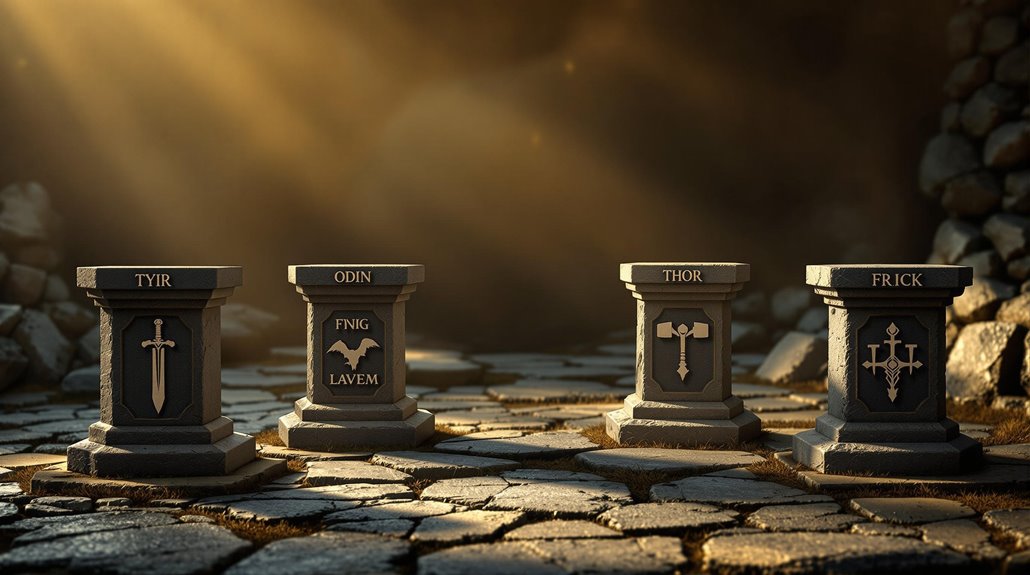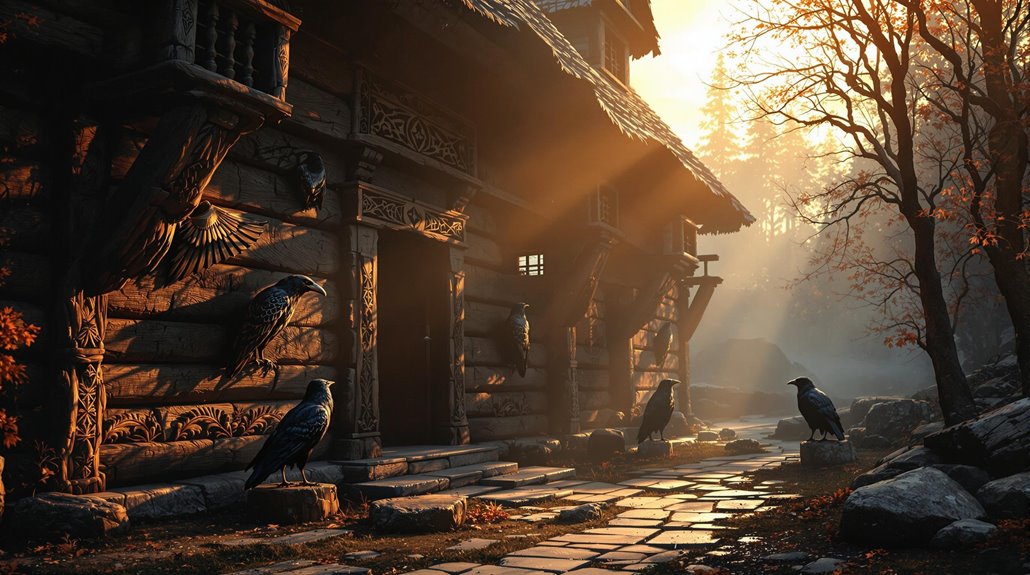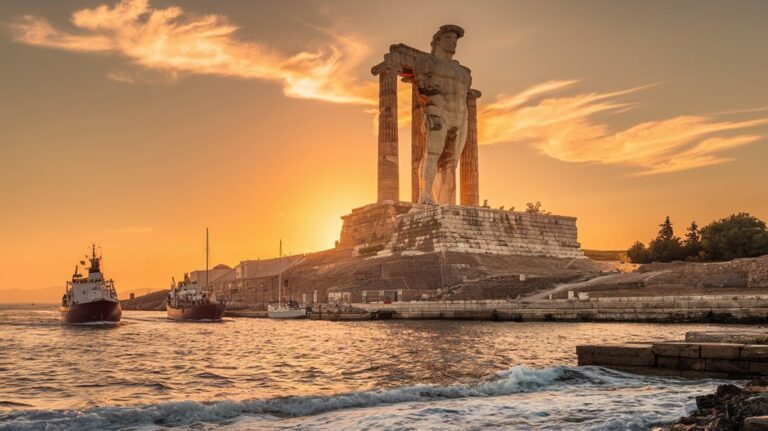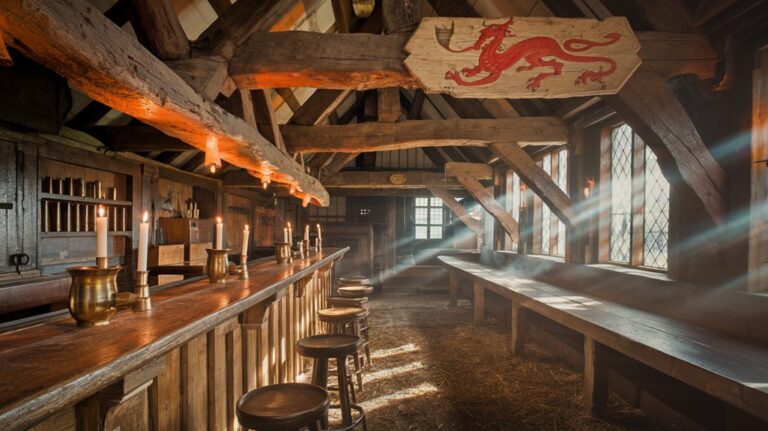Four Weekdays Are Named After Norse Gods
Just as Zeus's thunderbolts echo through Greek mythology, Norse gods wield their influence in your daily life – even if you don't realize it. When you're marking your calendar or planning your week, you're invoking the names of ancient deities who once commanded the respect and reverence of Viking warriors. From Tyr's day of war to Frigg's celebration of marriage, these four weekdays carry stories of power, wisdom, and divine legacy that continue to shape our modern world.
The Norse Gods Behind Our Modern Calendar
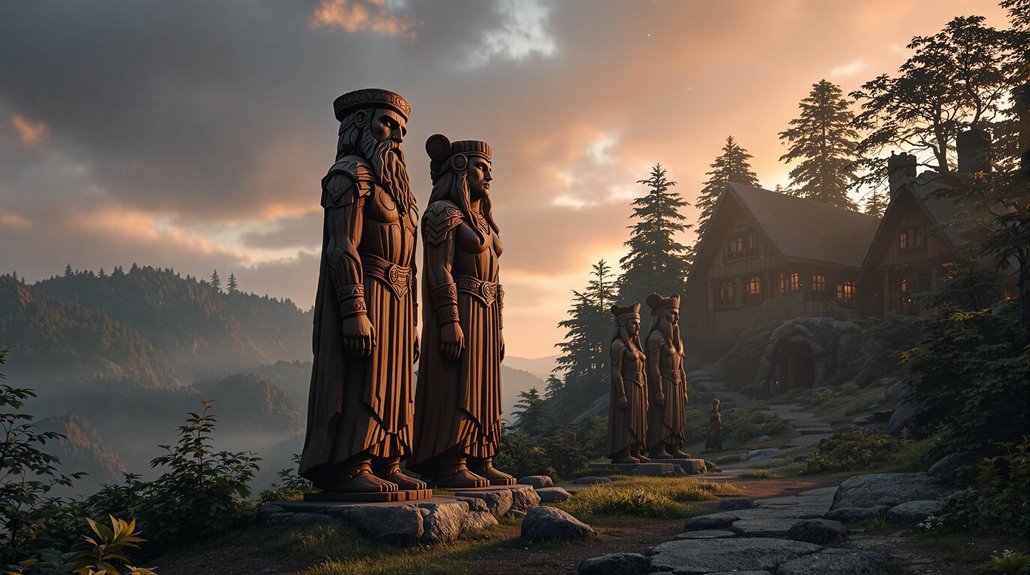
When you glance at your calendar, you're actually looking at a fascinating piece of Norse mythology preserved in modern language. Your everyday week includes direct references to powerful Norse deities who once ruled the pantheon of Germanic peoples.
While Sunday and Monday trace their origins to celestial bodies, and Saturday maintains its Roman roots, four weekdays carry the legacy of Norse gods. Tuesday draws its name from Tyr, the war god. This adaptation came about as Nordic cultures were inspired by the Latin naming tradition.
The calendar origins reveal how deeply Norse mythology influenced Germanic cultures, as they replaced the Roman planetary week with their own divine figures. You'll find Odin in Wednesday (Woden's Day), Thor in Thursday, and Frigg in Friday.
These names weren't just randomly chosen – they reflect the Germanic peoples' deliberate effort to align their most important deities with the days of the week, creating a calendar system that's endured for centuries.
From Tyr to Tuesday: The God of War's Legacy
As you examine the origin of Tuesday, you'll discover its direct connection to Tyr, the Norse god of war, justice, and law. The evolution of his name from Proto-Germanic *Tiwaz to modern English Tuesday shows how deeply embedded Tyr's symbolism remains in our everyday language.
When you learn about Tyr's sacrifices, you'll find that his most famous act involved losing his hand to bind Fenrir, the monstrous wolf. This selfless deed exemplifies the noble qualities he represented: honor, bravery, and duty. War and justice were Tyr's primary domains as a deity, making him a figure of both military might and legal wisdom. Ancient Germanic tribes viewed him as the Sky Father, tracing his origins to the Proto-Indo-European deity *Dyeus.
The Romans recognized Tyr's importance by equating him with Mars, their own god of war, which is why Dies Martis (Mars' Day) and Tuesday share the same position in the week.
Today, Tyr's legacy lives on not just in our calendar, but in art and literature celebrating ancient Germanic values.
Odin's Wisdom Lives On in Wednesday
Through the mists of time, Wednesday carries forward the legacy of Odin, the one-eyed Allfather of Norse mythology.
You'll find his influence embedded in the word itself, derived from "Wōdnesdæg," meaning "Woden's day" in Old English. Odin's sacrifices for knowledge – giving up his eye and hanging on Yggdrasil – reflect in Wednesday's traditional associations with wisdom and important decision-making.
Like many early time tracking methods, ancient Norse people relied on Odin's wisdom to guide their agricultural and seasonal activities. The seven-day week was adopted from the Romans, though Germanic peoples made it their own. Wisdom's legacy continues as Wednesday holds the middle position in your week, mirroring Odin's role as a mediator between domains.
When you speak of Wednesday, you're invoking a day that Germanic peoples deemed sacred to their chief deity, replacing the Roman god Mercury with their own wise wanderer.
Even today, the day maintains its mystical connections through divination practices and cultural observations.
Thor's Mighty Influence on Thursday
Moving from Odin's domain of wisdom to his son's territory, Thursday thunders into our weekly calendar with unmistakable power.
You'll find Thor's symbolism deeply embedded in this weekday's name, as it evolved from the Old English "Þunresdæg" and Old Norse "Þórsdagr," both meaning "Thor's day." As the god of thunder, lightning, and protection, Thor's cultural impact extends far beyond ancient times. Ancient Germanic peoples often worshipped in groves where they would seek Thor's blessing for justice and favorable weather.
You can still trace his influence across modern Nordic languages, where most countries use variations of "Torsdag," though Iceland and Greenland have unique names for this day. In Denmark and Norway, Thursday is called Torsdag, directly translating to Thor's Day.
His legacy lives on through place names, modern entertainment, and even neo-pagan worship. When you say "Thursday," you're actually invoking the name of this mighty hammer-wielding deity who once protected both gods and humans.
Friday: The Day of Frigg and Freyja

When you explore the origins of Friday, you'll discover two powerful Norse goddesses behind its name: Frigg and Freyja. Many scholars believe they might be the same deity, as both share connections to Venus and feminine power.
Frigg's symbolism centers on her role as Asgard's queen and Odin's wife. She dwells in Fensalir's wetland halls where she oversees matters of prophecy and fate. You'll recognize her by her sky-blue cape and her gifts of prophecy and wisdom. As the goddess of marriage and motherhood, she's influenced traditions like choosing Friday for weddings. Ancient Romans made the connection by naming the day Dies Veneris after Venus.
Freyja's duality makes her particularly fascinating. While she governs love and beauty, she's also a fierce warrior who leads the Valkyries into battle.
You'll find her riding her cat-drawn chariot, wielding both magic and martial prowess. This complex nature reflects Friday's varied cultural significance, from Islamic prayers to modern "TGIF" celebrations.
How Viking Culture Shaped English Language
The Viking invasions of the British Isles between the 8th and 11th centuries left an indelible mark on the English language. The Norse influence was so profound that you'll find roughly 2,000 Norse-derived terms in medieval texts, with about 700 still used in modern English. Over 35,000 Danish settlers contributed to this massive linguistic transformation.
The Viking legacy extends far beyond simple vocabulary additions. The word "berserk" from Old Norse meaning a warrior in uncontrolled rage remains a testament to their influence. You'll notice their impact in:
- Common words like "husband," "sky," and "window"
- Northern English dialects, which retain more Norse words
- The shift from synthetic to analytical language structure
- The creation of word pairs like shirt/skirt and shrimp/skimp
This linguistic transformation was so significant that some scholars suggest English should be reclassified as a North Germanic language.
You'll particularly notice this Norse influence in Yorkshire, where Old Norse words remain more prevalent than in standard English.

